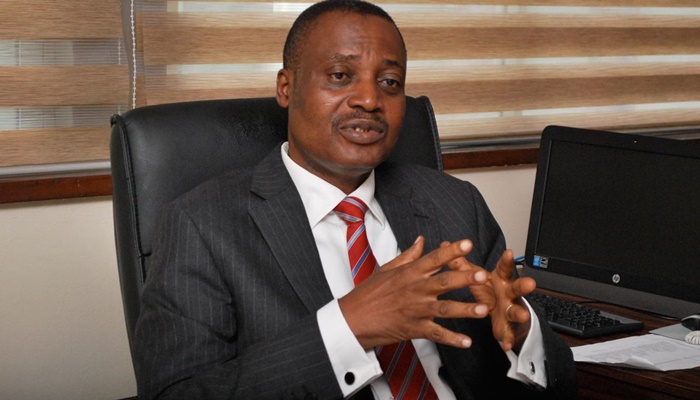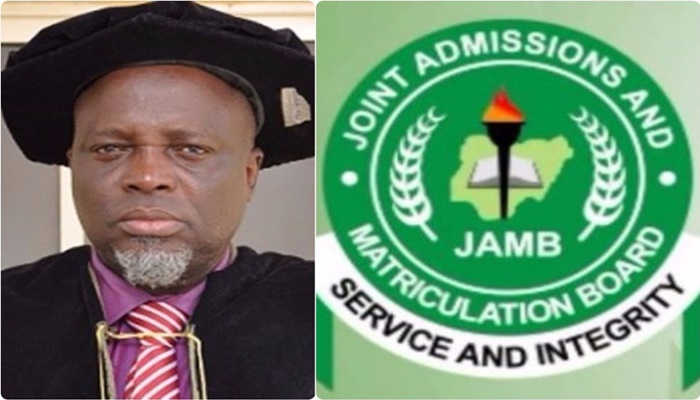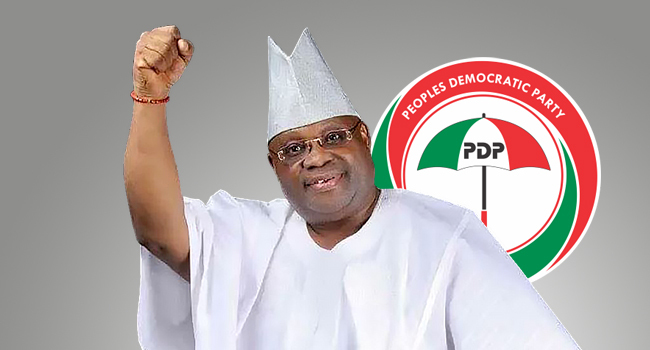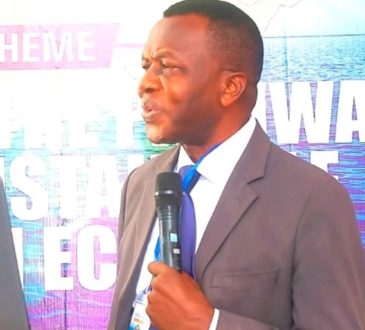Corruption thrives in our clime because we lack moral courage to tackle it — New ICAN President

The newly installed 52nd president of the Institute of Chartered Accountants of Nigeria (ICAN), Deacon Titus Soetan is of the view that Nigerian’s corruption cannot be tackled by accountants alone rather everybody should be involved with entrepreneurship and honesty. He encouraged more chartered accountants as entrepreneurs, running their own businesses in order to reduce the level of unemployment in the country.
This is because they are trained entrepreneurs, equipped with the skills to run successful businesses. In this interview with NIYI Olaoye, the professional and astute manager talked about, the likely changes and his plans for the institute, Nigeria’s new foreign exchange regime and how the institute’s activities impact on the economy. Excerpts.
Sir, let us start with this: Looking back to the days you first became a chartered accountant and now, what are the specific areas you have noticed changes?
Of course the profession is not static. Many things have changed. With technology which has affected all areas of our lives, the processes have changed. The institute has incorporated the changes as much as possible into our programs, especially into our syllabus so that the members we are churning out are not deficient when they get to the market place. But our values have not changed. Our integrity which we hold dearly has not changed. Our disciplinary process has been the same. If a member is reported, he goes through a system of adjudication whereby he goes through an investigating panel. If the panel found no case against him, they will dismiss it at that level. But if prima facie case is found against him, they send him to Accountancy Disciplinary Tribunal. The judgment of that body is equivalent to the judgment of a high court so that anybody who wants to appeal against the judgment will go to the appeal court. Our findings and judgments are published in our professional journals. We may not make them sensational by going to the traditional media but we want to achieve a maximum result with that method. So, our members are well aware that they cannot behave anyhow.
As the newly 52nd president of the Institute of Chartered Accountants of Nigeria (ICAN), what are your major plans for the institute?
My plans for ICAN are to make sure we sustain and improve the brand. It is a good brand that we have inherited over the years. Having the brand is not where it stops. We must ensure that the brand continues to make meaning and remain relevant. I will leverage on all our strength built over the years. I plan to do a lot of advocacy program and we are going to do that more vigorously beginning from this year. We have to let the public know our stand on certain burning issues of public interest that are begging for answers. We are not a trade union no doubt but our voice is respected by many people in, and outside the country. We have programs for our members that will improve their skills and make them render the kind of service they should render to the public. We want those of them in practice to practice their profession with ethics and professionalism in mind so that they don’t go against any legislation because if they do anything wrong, it impacts on us all. We will be holding more talks and training programs for them. Those who want to specialize in certain areas other than Audit, like Forensic Accounting, we have our certification program for them. We encourage them to get certified as Forensic Accountants which is an aspect of accountancy that is relevant in our clime.
Now that you mentioned it, Forensic Accounting seems not to be well known in this part of the world. Being the president of ICAN, are you saying you will drive and deepen the learning of that aspect of accounting especially at this period of much talk about corruption?
You are right to say it is not well known. But like I said, we have even commenced the certification program so that our members can come and get special training and be recognized in that area. Of course, they will be trained in fraud detection, but the issue of fraud is a different thing entirely. It depends on the environment and the organization in question. It bothers on whether such organizations even have experts that will assist forensic investigators. You know it is difficult to meddle into other people’s affairs. You cannot achieve desired result if you are not there and there is no one assisting you. I can come as an auditor after the event has taken place, but it will be good to have the kind of experts in Ministries, Departments and Agencies that would be able to raise the alarm before any harm is done rather than now when everyone has looted the treasury before we start to cry all over the place.
How can ICAN help Nigeria in combating corruption?
It is not only ICAN. Everybody should be involved. But for the institute as a body, it is helping in several ways. We believe and hold tenaciously to our motor: accuracy and integrity. That means that though we are no saints, we must act above board in all given circumstances. Members should not be unnecessarily tempted to betray the trust bestowed on them. When they are in position of trust and authority, it is first to benefit their organization and the general public not themselves. These values are imbibed all through our training programs and processes such that when they become qualified, they would have imbibed the value of accuracy , integrity and ability to manage people’s money entrusted in their hands. Not that those members don’t need money, but they must manage it. Whatever you earn as a result of your employment or your service that is what belongs to you. You don’t dig into your employers’ money for your own benefit. That does not belong to you. If you do, it becomes professional misconduct and under our processes, the penalties are heavy. If anybody is found guilty, he or she can be expelled from the institute and the person has no right to answer a chartered accountant again.
That sounds severe enough
Yes. Why corruption has thrived very well in our clime is because we don’t have that moral courage to take the right step. In other climes like China, there is corruption but once you are caught, you become a public example. They may even go to the extent of killing people but we are not even talking of that. If people that are caught are given the right sentence, everyone will sit up because nobody wants to be made a public show. But that is what we are lacking in this jurisdiction. Remember the president said if we don’t kill corruption, corruption will kill us. He went further to say that everybody’s hand must be on deck including the Judiciary. I am not saying that you crucify a person for the sake of crucifying him. When a case lingers for too long, its essence is lost because justice delayed is justice denied as they say. So, the Judiciary should help in speeding up justice so that we get result as fast as possible without compromising the procedure.
Is it that when Judiciary speeds up cases and with more professional accountants in various sectors of the economy, corruption will reduce?
It will be reduced. But then, we need a national orientation. What are our values as a people? We need to develop that, right from the family level. In the past we talked about old politicians as being corrupt but are we having them today? No. We have young men as politicians today. They are our brothers and sisters. Some are even our children. What values did they get from home before getting to the public? It matters a lot. Everybody must espouse good moral values in their children because they are going to be the rulers of tomorrow. If good values are imbibed at the family level, when you become a leader or get to the position of authority you will not forget. On the part of the government, it needs to promote accountability by its body language. A government cannot say it is fighting corruption whereas its body language does not show it. People will know that such government is paying lip service to the matter. So, people in government should also live above board so that when the issue of corruption is being discussed, they will have a mouth to talk.
Are you satisfied with the level of enrolment into the institute by prospective chartered accountants?
Yes. But there could always be improvements. Some people are scared may be because of misgiving that the profession and its examination is too hard. I say misgiving because people will always find excuses for their failure. What I can say to such people is, if some people are passing the exam, why can’t you do the same. I believe that our enrolment is okay though there is competition out there from local and foreign bodies. Despite that, we have our good share of the market. When you talk about a chartered accountant, people know what you are talking about and we want to sustain that brand. So, we are not afraid of competition. It only challenges us to make the institute more relevant by ensuring that our members are good ambassadors. Once we achieve that, the sky is so wide that all manners of birds can fly.
In the light of what you just said, where do you see the institute in the next five years?
Today, we have about forty thousand members of the institute. In the next five years I would like to see that number increasing to forty five to fifty thousand members. That is not a small achievement. But most importantly, I want to see people empowered. I want to see more chattered accountants going into businesses because by our training we are not just book keepers for people. We are trained in all aspects of businesses: Entrepreneurship and many more. I know there are a lot of challenges, if we have the courage and what it takes, we can still set up thriving businesses. That way, the rampant unemployment will be reduced. In many jurisdictions, it is the entrepreneurs that provide most of the jobs. You start your small scale business and employ twenty people, I do the same. Twenty people employed are like a hundred people employed. If many people do this, rising unemployment will be a thing of the past. We all have to join hands. Our members in particular are well positioned to be entrepreneurs.
Now that we have talked about entrepreneurship and job creation, can you assess the impact of ICAN on the Nigerian economy?
We have made impact but may be not as much as one would have expected, because many people think that once they get a job, they are okay. They may be okay but who says an accountant can’t combine the profession with agriculture. You can be an educationist or anything whatsoever. For instance, I and my wife have a school we run together. I realized that I might not be a teacher, but I am a manager of men and resources. With that realization, you found out that there is no area of business that you cannot function. The richest man in Africa today, has his hand in so many areas: trading, manufacturing, oil and gas he is there. How much of those has he gone for training? With his idea, he puts the right people there, have the right control and monitoring. That’s what I want our members to strive to do. Meanwhile, we have forty thousand members working in different sectors of the economy. Some are bankers; some are working in manufacturing and even ICT sectors and so on. It is our joy to see that our members are thriving and contributing their quota in the economy. But government has to create the enabling environment. There should be power supply, road and other infrastructure. These things are achievable with sincerity of purpose. So, if a government that promised to provide all these things begins to give excuses, people will begin to doubt its ability to meet the aspirations of the people.
Over the years, Nigerians have been hearing about financial impropriety in NNPC, is it because they do not adopt appropriate accounting procedures or that those in authority intentionally want to be fraudulent?
It may not be right to single out an organization in order to dissect them if you don’t know everything about that organization. Like I said before, there is nowhere there cannot be fraud or whatever. It is just the creation of the environment. If the environment is such that people can do anything and get away with it, of course people will do. In the organization that you talked about, it seems like it is awash with money. Like one leader said, ‘money is not our problem but how to spend it.’ In other organizations that there is no much money, the little they have they will guide it jealously.
I would think that it boils down to the culture of the organization. If the body language of the people at the top is such that we are here to get the best we can because we are not going to be here for a long time, the others who are down the ladder will help themselves too. This is more serious where there are no systems of control. In such places, many things like appointment, promotion are politicized. There is every tendency for corruption to thrive. But that is not to say that we don’t have people who know what they are doing there and have been keeping to the dictates of their conscience. They may be few, but they are still there.
Are you saying their accounting procedures are in consonance with international best practice?
I will believe that their accounting procedure is of international standard but you see, it is men that operate the procedure. For instance, we might have a good procedure here in the institute, but I might forget the cheque book of the institute on the table. Somebody that has no authority here can pick it and write an amount of money signs the signature and colludes with a bank and the money is paid. Does it mean there was no procedure? We do have but people will always look for areas where they can exploit the procedure fast. The banks have procedures but you hear people complain about unauthorized withdrawals from their accounts.
What advice do you have for young and aspiring accountants?
My advice to them is that if they have chosen accounting as a profession, they have chosen the right profession. They have chosen a profession of dignity. Although you may not become the richest man in Nigeria, but this is a profession that will put food on your table. The society will place premium on your person. There is nothing that is difficult to achieve. What is needed is the right spirit. Those aspiring to become chartered accountants should not be intimidated by fables. Those fables have been there over the years and people are still passing. In fact, there are some universities whereby before students do their first degree; they will be qualified as chartered accountants. So, if it is possible with them, it is possible with everybody. You only need to be dedicated and focused because you are doing an examination that you are not face to face with the examiner. It is not the kind of school exam that you write after you have been given notes and when you study the notes you will pass. No, it is not like that but, achievable and not too difficult to pass.
What are your views on the new CBN foreign exchange policy and the much talked about 41 items excluded from the official foreign exchange market?
The Central Bank of Nigeria has reasons for its actions. Whether or not we agree with their reasons is a different thing entirely. Concerning the 41 items, I think we should have capacity to produce them in this country. Why do we have to import toothpick when we have wood and everything here? Why do we keep creating employment for others and remained consumers. Why can’t we give local manufacturers some protection to produce some of these things? If we get it from the perspective of protecting infant industries, we will not see it as punishing anybody. My only concern is that many times we have policies but we don’t sustain those policies. We should avoid policy summersault.
Concerning the newly introduced floating exchange rate regime, it is a step in the right direction. Many people have even said it should have come a year ago. But the president had insisted on non-devaluation of the naira because of its implication on Nigerians. I believe that they have considered the fact that defending the naira with dollars that you don’t have, is an effort in futility. One thing I think it is going to do is that it will boost the earnings of both federal and state levels of government. This is because the money that was being given to states in the federation account allocation used to be at the exchange rate of about N197 to the dollar. But now, if the exchange rate settles at N280 and above, the naira content will be more. They will have the quantum of money higher than what they used to have, and so, many of them will be able to pay salaries. But there is a corollary to it. That is the fact that many of the states are indebted overseas. They borrowed money in dollar terms. When they want to pay back in dollar terms, they need bigger quantity of naira to pay. So, it is a double-edged surd. However, I believe that the policy will stop rent-seeking and round tripping. Having said that, I think it is a good policy from the CBN.
How do you relax? Do you play gulf or football?
(Laughs) No I don’t play football, but if I have the time I jog and run and I think I find it satisfying. It is only the time that is not always there. You go to bed late and wake up late and so you don’t have the time. But whenever I have the time, I jog and run because I find that beneficial to me.






